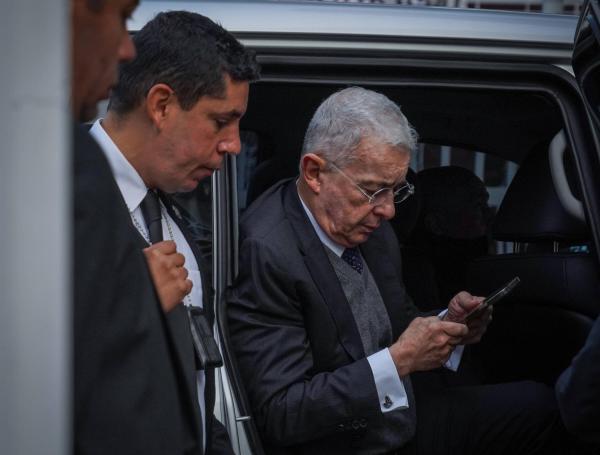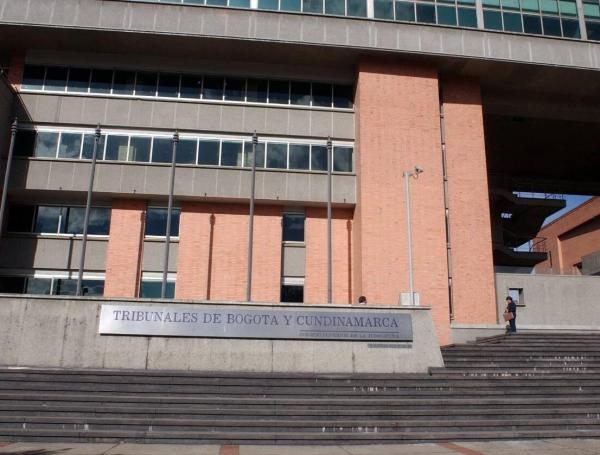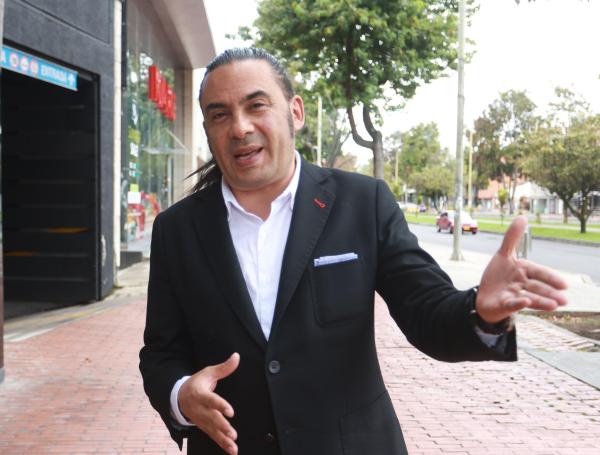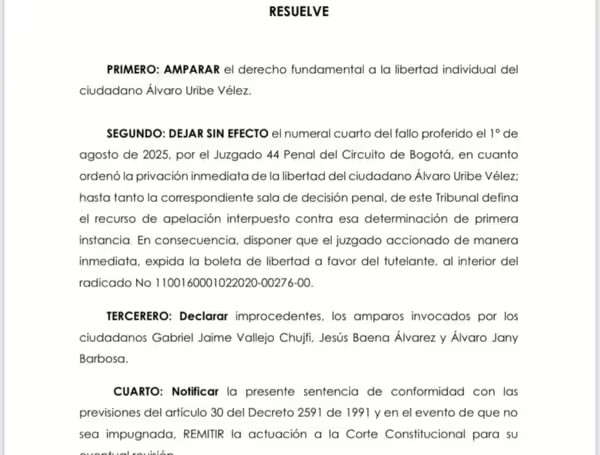In a 38-page document, the Bogotá Superior Court ordered the immediate release of former President Álvaro Uribe Vélez. The decision came after a ruling in a tutela (protection) case challenging the order of the lower court judge, Sandra Liliana Heredia, who convicted the former senator in the first instance and ordered his immediate house arrest.
The Criminal Chamber of the Court ordered the 44th Circuit Criminal Court to immediately issue the release order. According to the ruling by Judge Leonel Rogeles, the grounds presented by Judge Sandra Liliana Heredia for ordering the detention were described as"vague, indeterminate, and imprecise."
The judge noted that the acts attributed to Uribe had affected specific individuals and not society as a whole, which in his opinion made the need for immediate deprivation of liberty to preserve peaceful coexistence unintelligible.

The readings of the ruling
EL TIEMPO spoke with criminal lawyers, who interpreted the ruling as"a legal feat."
Criminal lawyer Francisco Bernate argued that the decision to overturn the preventive detention order against former President Álvaro Uribe Vélez through a tutela action constitutes "a legal feat," as it is a remedy for exceptional use.
The jurist explained that “overturning part of a decision through a writ of protection is very difficult and has been achieved thanks to the serious work of two great lawyers, but also because the court realizes that the arguments for arresting the president were not valid.”
Bernate stated that the decision is enforceable immediately and means Uribe will be released within hours, pending any appeals.
Regarding the possibility of an appeal, the criminal lawyer clarified that"those called to challenge in this case are only the Prosecutor's Office and the alleged victims, because the judge does not have the status of a party in the protection; she is simply linked to the process."

Regarding the implications for the judge who initially ordered the arrest, Bernate clarified that there is no legal liability: “ What is simply being said is that the judge's decision was not correct, it is overturned and that's it, legally, there are no consequences.” However, he acknowledged that “when someone's decision is overturned, it leaves a bitter taste in their mouths; it is a very strong moral blow.”
Regarding the relationship between this decision and the ongoing appeal filed by Uribe's defense, Bernate cautioned that the two are separate proceedings."Just because it was granted here doesn't mean it will be granted there. This tutela court is different from the one that will rule on the case at that point, so it's very difficult to anticipate," he indicated. Even so, he emphasized that one of the central arguments of the appeal focuses on judicial impartiality, an aspect that could gain relevance after the tutela ruling.

For his part, criminal lawyer Mateo Coronado explained that from the first instance, there were questions about the decision to deprive former President Álvaro Uribe of his liberty, when the jurisprudence of the Constitutional Court, the Supreme Court of Justice, and the Inter-American Court of Human Rights establishes that the norm should be defense in freedom."This should be the general rule and not the exception," the jurist stated.
In his analysis, Coronado argued that the ruling that allowed the former president's release sends an important message regarding procedural guarantees. "What is appropriate in terms of rights is that the person defends himself in freedom and that the appeals are resolved, as is the case of former President Uribe who is free."
The lawyer explained that the court decisions refer only to the deprivation of personal liberty and not to the restriction of other rights such as communication through social networks. He added that, although there is public debate about the scope of these tools in politics , no orders have been issued limiting this activity in Uribe's case.
Regarding the next steps in the case, Coronado noted that the appeal filed by the Prosecutor's Office and the victims must be resolved by the Supreme Court of Justice and recalled that"the Court has a period of no more than 20 days to respond to the challenge to this protection ruling."
This voice was echoed by criminal lawyer Saúl León, who stated that"the ones who come are those who formulate the challenge against this protection ruling, they know the second instance to the court, whatever the decision, this will reach the court for the corresponding review, in accordance with a decree that is 2591 of the year 91."
Finally, he explained that all the tutelas, once resolved by the Supreme Court, can be submitted to the Constitutional Court for eventual review. According to Coronado, that decision could take one or two months after the Supreme Court's response, at which point it will be decided whether or not the high court selects Uribe's case for review.

For Andrés González, former Minister of Justice, the court's decision complies with fundamental rights. He explained that depriving a person of their liberty is only appropriate in exceptional situations and must be supported by a solid and definitive judicial process.
“It is a ruling that respects the principle of proportionality. Depriving a person of their liberty implies that they have been defeated in court, that is, that the presumption of innocence has been overturned. In this case, we are still at a procedural stage in which other instances are lacking for final and enforceable judicial decisions to be issued,” González said.
The former minister added that, in Uribe's case, there are no exceptional grounds that justify his detention."Depriving a person of their liberty before a final court decision is issued is only appropriate in exceptional circumstances, such as when the defendant refuses to appear before the court or poses a risk to the victims. In this case, there has been a constant willingness to resort to all judicial channels," he noted.

